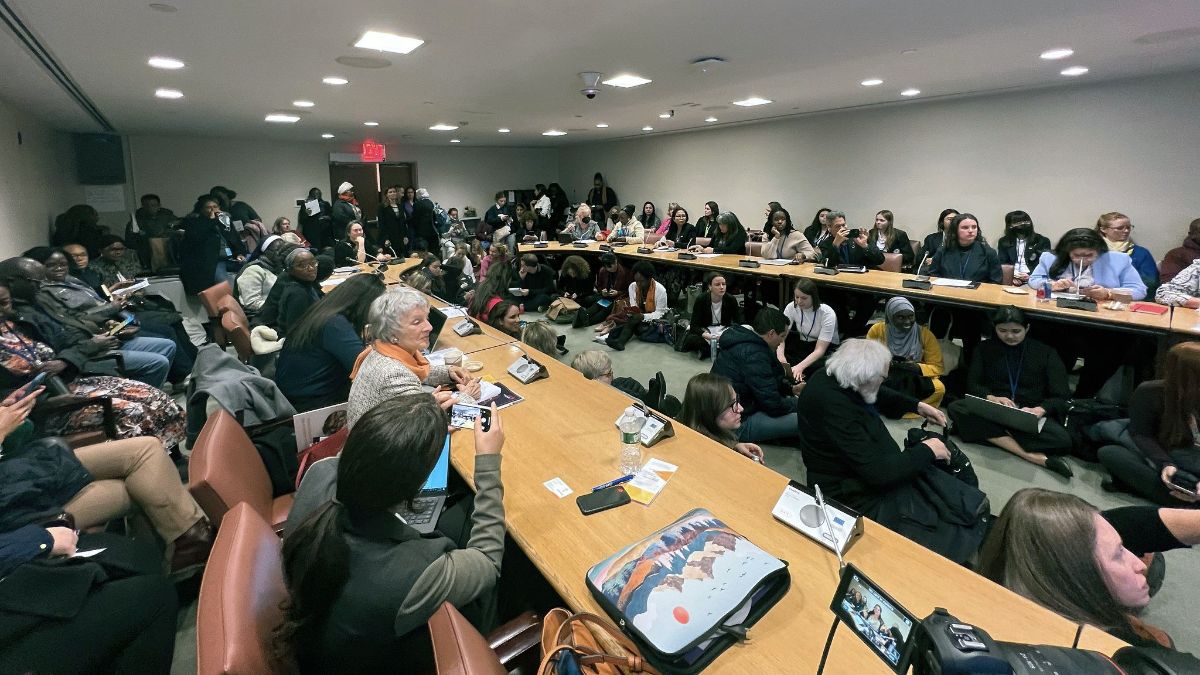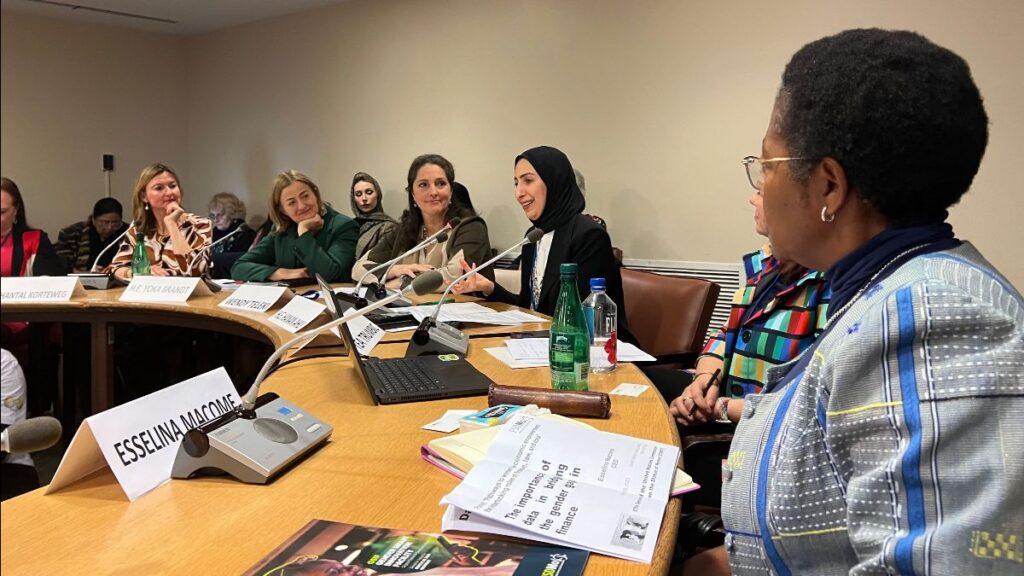At this year’s CSW67, We-Fi was delighted to co-host a high-level side event on the role of data in empowering women entrepreneurs. In collaboration with the World Bank’s Women, Business, and Law Project (WBL) and the Kingdom of the Netherlands, the discussion brought together senior leaders from the Netherlands, the United Arab Emirates, the International Monetary Fund and civil society to examine the compounding forces that exacerbate the systemic constraints faced by women entrepreneurs around the world.
This year’s WBL report found that women still have only 75% of the legal rights afforded to men. With 2.4 billion working-age women living in economies without legal parity, we are all accountable; but everyone must also be accounted for if we are to make change happen. Sex-disaggregated data is at the core of We-Fi’s programs because women must be present and visible within the data to inform the critical policy and regulatory reforms for women’s economic empowerment.
As H.E. Yoka Brandt, the Netherlands’ Permanent Representative to the United Nations remarked during the session, “In the face of the multiple crises we are in today, we run the risk of backsliding globally when it comes to women’s economic empowerment… it’s through data that we move from limited choices and resources to more opportunities for women.”
Ambassador Brandt rightly noted that women entrepreneurs are facing unprecedented crises including climate change, fallout from the COVID pandemic, and conflict, which underlie the need for greater emphasis on gender parity to ensure resilient recovery and sustainable growth. Meanwhile, Tea Trumbic, Manager of the WBL project at the World Bank, shared with the panel that 2022 saw the lowest number of gender-related legal reforms in 20 years. Just “18 countries enacted 34 reforms,” she noted, concluding that “Data is critical to identify gaps, celebrate progress, and incentivize reforms.”
H.E. Hanan Ahli, Director of the UAE’s Federal Competitiveness & Statistics Center agreed that “data is important not only to identify the gaps but also to celebrate progress,” an incentive necessary for legislators to adapt international best practices to their unique cultural contexts. “We use data and research to audit realities… to identify areas where we need to catch up,” Ms. Ahli explained.
Even in countries that scored high in the WBL index, women lack economic equality. Chantal Korteweg, Director of Inclusive Banking at ABN AMRO Bank and Dutch UN Women’s Representative 2023 shared that despite the Netherlands ranking as one of the 14 countries worldwide where women have equal rights as men, “Women in the Netherlands are not in equal financial standing. 44% of Dutch women are not financially independent, versus 23% of men”. “Products and services in the financial sector need to become more inclusive for women”, says Chantal.
Sub-Saharan Africa saw more than half of the 34 gender-related legal reforms enacted in 2022 around the world. Esselina Macome, CEO, Financial Sector Deepening Program (FSD) in Mozambique explained during her remarks that data is the key to understanding the size and root cause of the financial inclusion gender gap. “In order to close the gender gap,” she argued, “we need to have the capability to do research in a proper manner and the capability to analyze data and move from insights to product design and impact monitoring.” She noted that Mozambique’s current gender gap in financial inclusion, cited at 5%, “only measures access to financial institutions, not access to finance – this gap would be much bigger.”
Katharine Christopherson, Assistant General Counsel at the IMF suggested that in addition to quantitative data, qualitative data is required to assess law enforcement and implementation that are often stymied by social norms. “Law reform is very important, and we can’t reach gender equality without it,” she observed, “But it is not enough. It means nothing if the laws are not implemented.” Ms. Christopherson ended her remarks on an encouraging note, reminding us that “It is not impossible to change social norms and belief systems that impede women’s economic empowerment. It takes time, and we need political will and leadership to spur this change.”
If women entrepreneurs reached parity with men, $5-6 trillion in net value addition could be generated globally. As Ms. Trumbic concluded, “It will take all of us to make change happen. You can demand change from your governments, from your societies, but also from your families because we cannot have equality in the workplace until we have equality in the home.”
Watch the full recording of the event here: www.we-fi.org/csw-67


